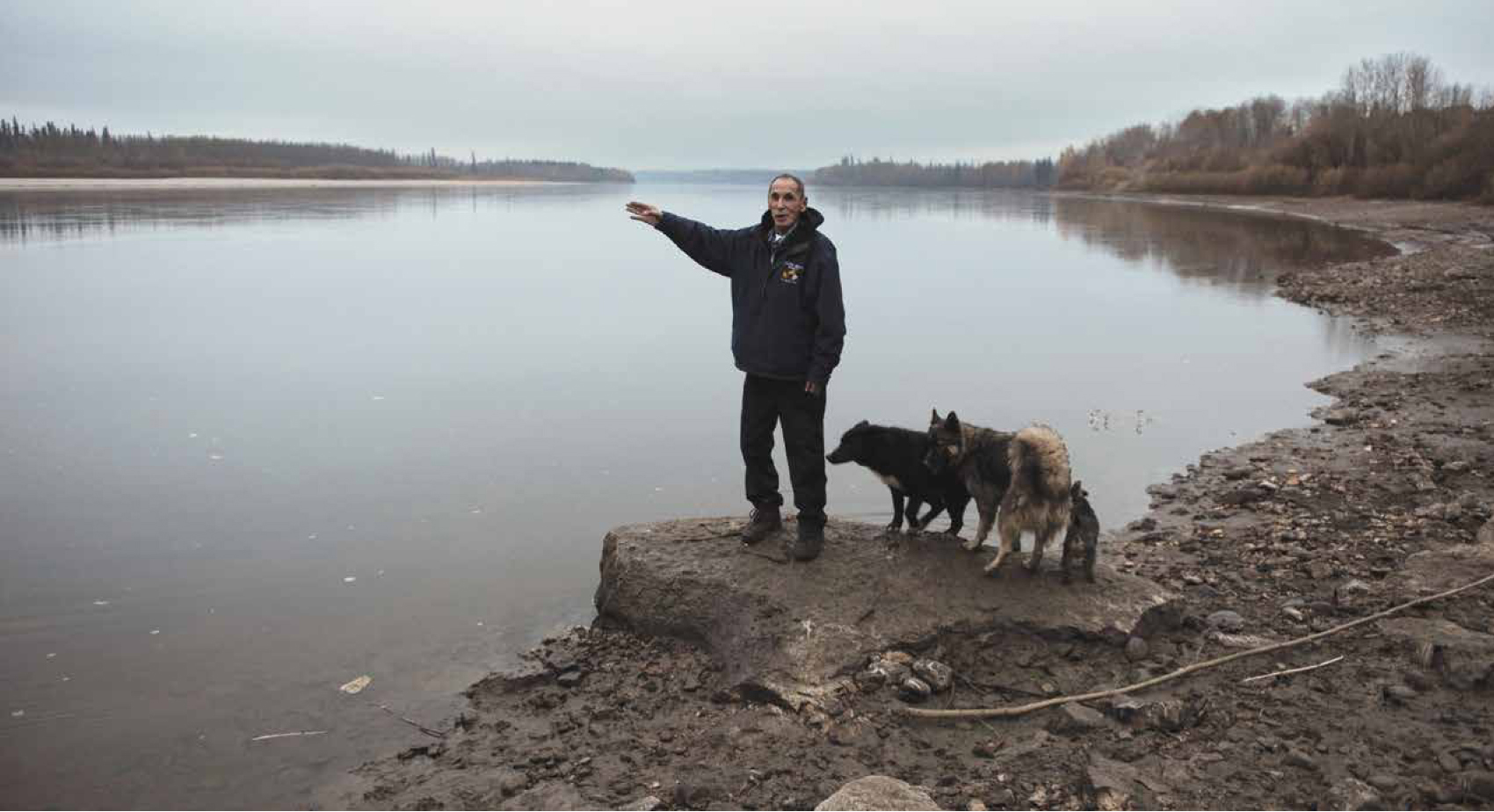20.7 Oil consumption drives extraction.
Not all countries use energy equally. The United States, for instance, uses more energy than any other country— its overall primary energy use tripled from 1949 to 2009, according to the U.S. Energy Information Administration. Canada is one of the top users of energy, as well. Transportation accounts for a large part of this energy; a relatively small population spread over a large area uses a lot of fossil fuel to get around. Canadians also use a lot of energy for heating, a result of our cold climate.
Much of this energy comes from fossil fuels—coal, oil, and natural gas, with crude oil as the dominant source.
Canada is consistently ranked as one of the top energy producers each year. Oil sands and other sources of heavy oil are estimated to contain around 20 trillion barrels of oil in place, and much more may still be undetected. More than 140 000 square kilometres contain oil sands; as of 2007, the Canadian Association of Petroleum Producers estimates that more than 170 billion barrels of proven reserves still remain. Another oil resource, a non-kerogen type of oil found in oil shale known as tight oil, is also being accessed via fracking, adding to Canada’s overall production and reserves.
In other countries, the energy balance isn’t as favourable: the United States uses much more oil than it produces. In 2009, it produced only 11% of the world’s oil, but consumed 22% of it. Most of the rest was imported from Canada, Venezuela, and Saudi Arabia. This, however, may be changing. The United States is also applying fracking technology to tap its own tight oil deposits in North Dakota and Texas. Whether this will be enough to reduce its imports from Canada remains to be seen.
At the same time, the United States is trying to reduce its consumption of oil, according to a report published in 2009 by IHS Cambridge Energy Research Associates. The report predicts that U.S. oil use peaked in 2005 and is now in decline, partly due to improvements in vehicle fuel efficiency. But in developing countries such as China and India—the world’s second and fourth largest consumers of oil, respectively, with Japan in third—oil consumption is still rapidly increasing. This makes it more profitable for Canada and other countries to extract as much oil as possible from the earth, regardless of the consequences.
Our economy and lifestyle are dependent upon reliable access to affordable energy, or energy security. Yet there are many reasons that our energy supplies might become unreliable or unaffordable. These include dwindling supplies, increasing demand, dependence on energy imports, competition from other countries, and a cartel or monopoly increasing prices or decreasing oil supplies.
365

As supplies dwindle and demand continues to increase, easily extracted oil becomes less available, forcing companies to use more powerful—and potentially more dangerous—technologies. But will the risks always be worth the benefits?
Schindler, for one, has seen the effects of the pollution at the Athabasca River first-hand. One of the contaminants that he and his team consistently found in high amounts was mercury. This toxic heavy metal is emitted into the atmosphere during the processing of bitumen into oil, then falls back down onto land and water surfaces as part of dry particles and in precipitation. One form of mercury, methylmercury, is particularly problematic because it readily accumulates in organisms, and biomagnifies at higher levels of food chains. This becomes a major problem for nearby residents who rely on fish for food. Ingesting dangerous quantities of mercury can affect all systems of the body, especially the nervous system, and is particularly dangerous for pregnant women and children. (See Chapter 3 for more on bioaccumulation and biomagnification of toxins like mercury.)
Other pollutants are known cancer-causers, and Athabasca fish have a high incidence of malformations such as spinal deformities, tumours, and problems with their eyes and mouth. “I’ve seen fish with one eye much bigger than the other, or a fish with two tails,” says Schindler. “I’ve got a collection of photos.”
For some people living in the region, simply cutting out fish isn’t always an option, explains Schindler. Many are poor, and there are few livestock farms in northern latitudes, making beef or pork very expensive. The only protein alternatives are often canned meats, such as Spam.
Clearly, pollution from oil mining has many ripple effects. According to Frances Beinecke, president of the nonprofit Natural Resources Defense Council, “as long as we keep the driving addiction and the oil addiction that we have we will be jeopardizing really fertile, fragile ecosystems all around the country— onshore and offshore.”